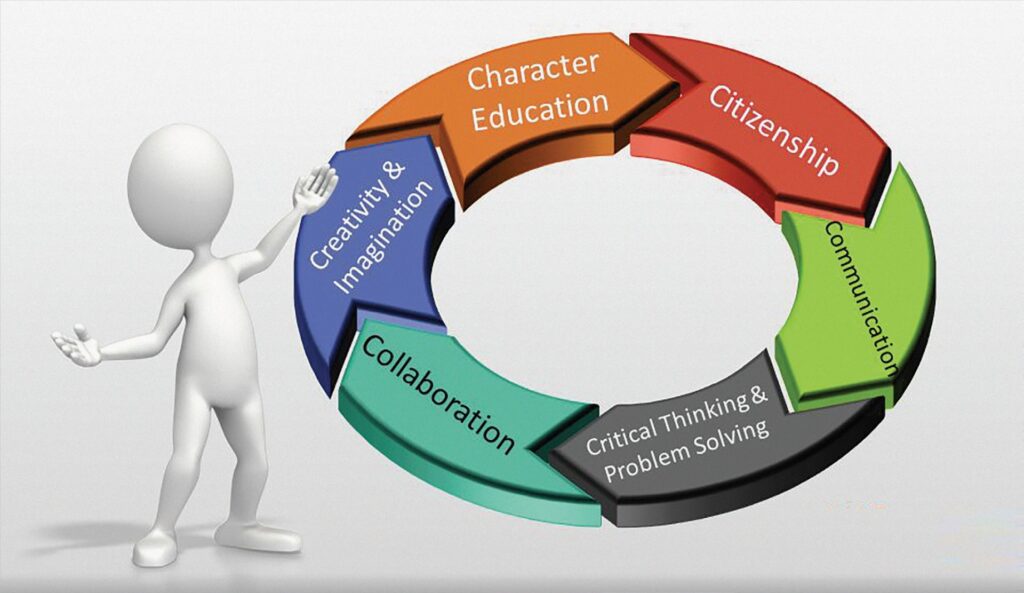
Unlike market strategies such as pricing, promotion, and supply chain management, a non-market strategy involves actions taken by a business to manage its relationships with various stakeholders, including governments, regulators, activists, the media, and the public. These strategies are thus linked to a firm’s ability to navigate the regulatory, institutional, and policy aspects of its business environment, and are often related to the political connections of business leaders.
Non-market strategies are used to hinder competitors from entering the market, with the help of politicians, bureaucrats, and other activists during the formation and implementation of policies. Such strategies influence the entrepreneurial ecosystem, which is a system of interdependent actors and their relationships that support the creation, growth, stagnation, and decline of businesses and the national economy. Along with market, human, and financial resources, the ecosystem includes policy, culture, and institutional support. It is a structure that governs how entrepreneurs interact with other stakeholders through a network of players to support entrepreneurship and business growth.
The interplay of non-market strategies among business people with different interest groups and actors makes this system dynamic. The dynamism within the institutional environment of the entrepreneurial ecosystem affects policy predictability and complexity. This dynamism can be created by political or regulatory instability, as well as by rapid economic shifts, changing customer preferences, and infrastructure challenges. This paper focuses on the entrepreneurial ecosystem because of the dynamic nature of its policy and institutional support culture.
Media reports
Discussions on this topic are relevant because the media in Nepal have been continuously reporting on policy corruption. A content analysis of current media indicates frequent use of keywords such as dalal (brokers), bichaulia (middlemen), briefcases, setting (arrangement), and access. Reports on policy-implementing agencies also include words like tampering of online registration systems, delays in services, the need to use dalal and bichaulia, and the rudeness of government employees toward service recipients.
The difficulties faced by business people in this environment are also reflected in the Ease of Doing Business Index and the Corruption Perception Index. These situations highlight the need for an improved institutional support system on the one hand, and the need for entrepreneurs to leverage their capabilities and networks to survive in such an ecosystem in an ethical and socially responsible manner on the other.
Purpose
This paper highlights how business people engage in corporate policy influence and interact with policy-implementing agencies, all within the framework of business ethics and socially responsible business practices. It includes a brief of research findings on how Nepali entrepreneurs use non-market strategies as a form of corporate political influence to survive and succeed in this dynamic ecosystem, and concludes with an analysis of ethical and responsible business behaviour.
Literature
Literature suggests that any market system favouring free market principles is influenced by growing corporate political influence. Interest groups often thwart policy reforms intended for the greater public good, influencing them for their own personal and corporate benefits at the expense of broader economic and social justice. These distortions come at the cost of a free market, preventing other market players from entering and thriving, and ultimately hampering economic and societal growth.
A common form of this corporate political influence is corporate lobbying, which is especially prevalent in emerging markets where the government is opaque and corruption and judicial unpredictability are high. Powerful interest groups gain more benefits from their political influence than do ethical and less powerful businesses. Particularly in developing countries, the institutional structure of the political environment is often designed to favour specific actors while restricting others. Successful policy advocacy and lobbying by individual and groups of business people have been found to ignore potential negative consequences, such as the creation of market distortions. In these cases, a few groups or individual businesses will thrive, hindering equitable growth for the country.
Firms seeking to survive and grow need to develop skills in understanding the complex economic, political, and social institutions that shape the policy-making environment and build strong relationships and coalitions. Firms with the ability to manage the policy-making environment are likely to improve their performance, leading them to spend heavily on corporate lobbying. Interviews with 20 middle-level managers from different companies revealed two types of corporate political influences.
Policy Lobbying and Advocacy
Negotiation with the government through political parties is a form of corporate influence that involves developing close relationships with policymakers and engaging in direct negotiation. Such influence is aimed at shaping policy reforms to favour a particular individual or group of businesses, as well as postponing their implementation to allow the businesses to strategise for maximum benefit. The primary methods of this influence are maintaining strong networks and providing cash to the relevant political parties and bureaucrats. For this purpose, business people strive to be well-known in the market to gain the power to influence policy formulation. Policy lobbying and advocacy are also conducted through business associations, federations, and confederations.
Influence in Policy Implementation
Even policies that are favourable to businesses may not be implemented without hassle by the authorities. These hassles can be so costly that businesses will suffer heavy losses if they do not engage in influence-peddling. Businesses that abstain from such political influence face delays in product launches and supply chain management compared to their competitors who participate in these practices. Consequently, businesses are often compelled to get involved in these actions to remain competitive. This kind of influence is necessary to overcome hassles created by procedural and intentional delays, confusion, and uncertainty. The methods of influence include bribing employees at government offices. Building personal relationships can also be effective in getting things done without bribery. For this purpose, individuals with close ties to implementing agencies are often hired as consultants.
Internal Management System
Businesses are also found to be using improved internal management systems. These systems involve hiring qualified lawyers, collecting and disseminating updated policy documents, sending experienced staff to deal with government agencies, and ensuring timely compliance. Establishing such a system within an organisation helps firms avoid having to pay bribes and saves time.
Power and Political Resources
A firm’s size is crucial for its ability to avoid unethical practices when dealing with government agencies and to withstand the risks associated with resisting bribery. Firms, both individually and as part of a group, influence political and bureaucratic actors to protect their business interests. This involvement is a strategic action, backed by the firm’s political resources, which vary across firms and industries. These strategic political resources are used to influence policy formation through joint or individual lobbying and networking with political and bureaucratic figures. Competitive firms that effectively use these non-market strategic management techniques often outperform their competitors.
Ethical and Socially Responsible Behaviour
Confirming to the Resource-Based View of strategic management, well-established companies, such as large taxpayers or reputable firms, play a crucial role in corporate lobbying, both individually and jointly. Therefore, firms do not willingly engage in corruption but are often forced to do so due to implementation hurdles created by government officials, their incompetence in delivering public services, and policy confusion among service recipients. This is a result of a lack of predictability, transparency, and accountability in policy, operational directives, and their implementation. Nevertheless, the corporate sector mitigates these problems by strengthening their internal management systems, such as by hiring lawyers, using experienced staff, and improving documentation and information systems.
Supporting the resource-based view, large and reputable firms are better equipped to use improved management systems and defend against harassment during policy implementation. Therefore, politically competitive firms can use their political resources and internal management systems to mitigate the costly act of bribing. They engage in less questionable forms of bribery during policy implementation. Conversely, weaker firms, which often adopt a follower strategy and support the lobbying efforts of leaders against policy reform, are compelled to resort to bribery to carry out their business operations during policy implementation.
The growing trend of corporate political influence to constrain policy reform for social and ecological welfare is undesirable. Such activities should be judged by the ethics of corporate political action of the firms and industries. The ethical implications of these corporate actions are measured by their goals and purposes, the means taken to achieve those goals, the consequences for the firms and the general economy and society, and the processes followed by the firms and industries.
Therefore, the rampant but often compelled use of political resources during policy implementation creates an unfriendly business environment. This issue needs to be addressed by promoting accountability, transparency, and predictability through the introduction of detailed rules, procedures, and working manuals to implement policy. Political and bureaucratic actors must be trained in ethical public service delivery and administration. Educational programmes for public and business administration should include ethical non-market strategic management to develop competent human resources who can contribute to sustainable social and economic development. For firms to be ethical in their non-market strategic management and increase competitiveness, they need to develop and implement a code of conduct. Violations of this code should be penalised by associations, federations, and confederations. Consumer protection groups should report such violations and call on customers to boycott the firms and their products.
(Shrestha is Professor at Kathmandu University School of Management.)



